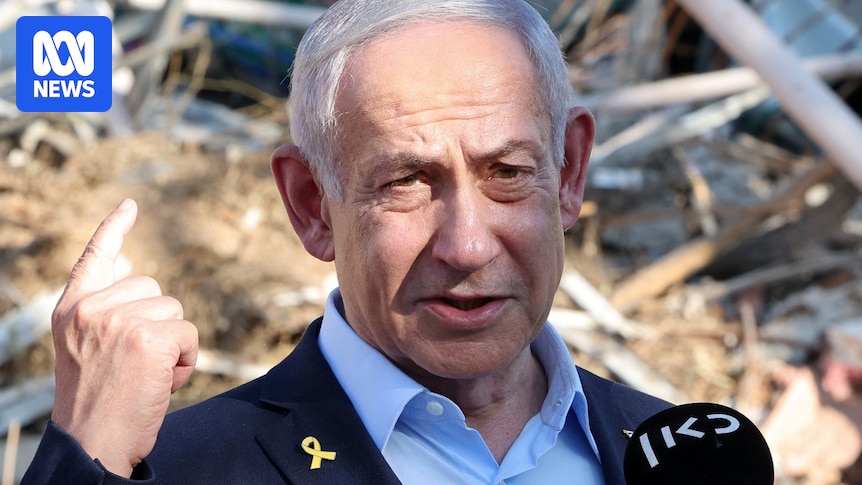
Deep in the throes of conflict with Iran, Israeli Prime Minister Benjamin Netanyahu made a rare public appearance at a falafel stand near a missile impact site just south of Tel Aviv. It was an unusual sight outside of election campaigns, as supporters lined the streets to catch a glimpse of their leader, chanting: “Bibi; King of Israel.” This scene stood in stark contrast to the months of public criticism Netanyahu faced from millions of Israeli citizens frustrated with the ongoing war in Gaza and the fact that 50 hostages remained there.
For a moment, it seemed the Prime Minister’s popularity was set to rise. As soon as Israel launched its air strikes on Iran, there was overwhelming support for the attack among Jewish Israelis and bipartisan backing across the political spectrum. A survey by the Israel Democracy Institute found that 82 percent of Jewish Israelis supported the attack on Iran. On the streets, Israelis were quick to explain their backing, citing the Iranian regime’s stated desire to destroy Israel and viewing the strikes as a pivotal moment in their country’s history.
Public Sentiment and Military Action
There was also a sense that Israel was confronting Iran on behalf of the world, undertaking actions that their allies could not or would not do. “This is a time of miracles, and we will win,” one Israeli expressed. Another was more direct, stating, “We will f*** the bastards, and after that, no one will think about starting even a small thing with Israel.” Despite some Iranian missiles being intercepted, others caused significant damage within Israel.
During the conflict with Iran, Netanyahu was on the optics front line, making several appearances at missile impact sites in Tel Aviv and at a hospital struck in the country’s south, reiterating his message that the attack was for Israel’s greater good. Few from the political echelon and elsewhere in the country spoke out against him. Now that the war is over, Israelis still seem to believe the short-lived conflict was necessary and that they achieved significant successes in diminishing a regime that had posed an existential threat for decades.
Political Landscape and Challenges
Among all the encouragement and praise for the war among the Israeli public, one might expect the same wave of support to bolster “King Bibi.” However, Israeli politics is rarely straightforward. Polling released during and after the war suggests that the country’s left and right-wing voter base hasn’t significantly shifted in its views. Netanyahu’s Likud Party has seen a modest bump, but at the expense of other groups within his ruling coalition.
This means that if an election were held in Israel today, Netanyahu would likely struggle to form a government, potentially ending his reign. Despite being Israel’s longest-serving leader, his coalition is tenuous, held together by six separate political parties, some of which routinely threaten to withdraw support if they disagree with his policies, including how to conclude the war in Gaza.
Iran’s Nuclear Ambitions and Regional Implications
Despite a ceasefire being declared between Israel, the United States, and Iran, analysts warn that we are now “moving into a true danger zone,” as the Islamic Republic accelerates its efforts to develop a nuclear weapon. The Netanyahu camp might have believed that Operation Rising Lion would erase painful and controversial memories for Israelis, including the security failures of October 7 and the ongoing war in Gaza, where 50 hostages remain captive, with at least 20 known to be alive.
While Netanyahu’s assault on Iran is locally considered impressive, the Prime Minister faces a significant problem. On Saturday night, protesters returned to the streets in Tel Aviv, expressing anger over what they described as a “festering wound” for Netanyahu — the absence of a ceasefire in the Israel-Gaza war. The ongoing campaign, which Gazan health authorities estimate has resulted in more than 50,000 Palestinian deaths, is becoming increasingly unpopular in Israel, especially due to the plight of the hostages.
Future Prospects and Political Consequences
Polling released in March by Israel’s popular Channel 12 found that 69 percent of Israelis supported ending the Gaza war in exchange for an agreement that saw all hostages released. Even among voters of Netanyahu’s right-wing coalition, 54 percent backed that equation. As one Israeli put it, “Bibi might have thought another war would distract us from Gaza, but we haven’t forgotten the hostages.”
Until that wound is closed, it is likely that Netanyahu’s approval and chances of re-election next year will continue to wane. The Prime Minister’s ability to navigate these complex political waters will be crucial in determining his future and that of his party.






